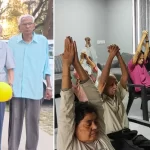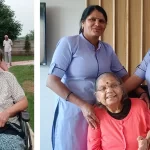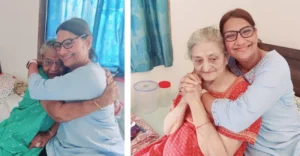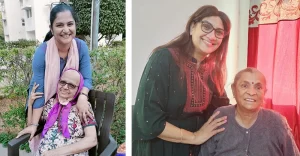Millions out there suffer in silence from mental health that is not visible or felt. All this despite help being available around through various coping mechanisms or devices. The expression of mental issues only deteriorates with old age, and they fall at a greater risk of aggravated mental health ailments like depression, dementia, Alzheimer’s, schizophrenia, bipolar disorder, etc. While mental health is a combined state of one’s emotional, psychological, and social wellness, any struggle to cope with that state slowly churns into mental illness or disorders.
Mental Disorders- Warning signs in older adults
- Pendulating energy levels vary from extreme high to extreme low.
- Erratic moods.
- Changes in eating or sleeping habits like losing interest in food or keeping awake at night need close monitoring by the family.
- Constant state of sadness, hopelessness, confusion, or fear
- State of numbness or an immunity state to any triggers or events in life.
- Unexplained aches and pains.
- Frequent nightmares, hearing voices, and hallucinations are concerning areas.
- Negative thoughts, be it self-harm or the urge to escape.
- Obsessive drinking, smoking or consuming substances to forget stress.
- Suicidal thoughts.
Sometimes sudden changes in life like losing a companion or loved one, relocation, retirement, serious illness, or complete isolation can elevate stress levels and sadness. Some take a long to adjust, and some are unable to cope. Individual families can take the first step, take the initiative, stay supportive and listen to their worries calmly sans judgment. Brings their concerns to the attention of their doctor, who is well acquainted with their history and recommends further steps and specialists to diagnose and determine problems.
Common mental health disorders
- Mood Disorders: Persistently depressed moods and losing interest in any activities affecting their day-to-day activities is clinical depression. Anxiety disorder creates constant worry and fear, and bipolar disorder results in mood swings from massive low and very high. Mood disorders are treated and managed with medicines and therapies depending on the stage it got diagnosed.
- Personality Disorders: Exhibiting unfavourable responses to situations or people, be it suspecting, blaming, scolding, criticizing, and forming a disruptive behavioural pattern. The attitude, thinking, and behaviours do not align with their interaction. It may range across various disorders like obsessive-compulsive, antisocial, avoidant, paranoid, borderline, etc. Medicines may ease a few symptoms, and psychotherapy and talk therapy that goes a long way.
- Psychotic Disorders: One of the common examples is Schizophrenia which brings out changes in behaviour and symptoms like delusions and hallucinations and can last longer than six months. Sometimes there are brief psychotic disorders due to illness or sudden death in the family. The recovery is quick, but older generations are not likely to bounce back quickly. Medicines and therapies help in bringing in longer stable periods.
- Eating Disorders: Older generations have an onset of anorexia mainly due to loneliness, causing a shrinking appetite. Also, due to physical health conditions like gut health, hormonal changes, decrease in taste and vision, and unexplained pain. Cognitive therapy or family therapy and encouragement for mindful eating help to manage the condition.
- Trauma-related Disorders: Post-traumatic disorders often arise due to traumatic events in the past or childhood, be it abuse, bullying, or domestic violence. Symptoms may persist or may be intermittent. Elders lose their capacity to manage that stress or hold it at bay strong. Cognitive therapies or exposure therapy brings patients to face with anxiety sources.
- Dementia: This disorder causes memory losses and handicaps in ways of communicating. It impacts the older generation and often leads to Alzheimer’s, a form of dementia that destroys many mental functions of the brain.
Elders with mental health issues – How can we help?
With the overwhelming increase in the number of mental disorders around elders, we cannot compromise on their care, love, and dignity protection. Sometimes they indulge in self-harm, substance abuse, alcoholism, violence, and verbal abuse. They need acknowledgement, acceptance, and help to manage the peculiarities of living with mental health issues. When no help arrives, they plunge further and further and scale up like no one’s business. Self-isolation is all used as a crutch during depressive episodes. When you are mentally unwell, it robs you of the smallest of joys and sucks our all reasons to be happy. The level is so deep that there is no escape unless the otherwise so-called sane world joins hands in support.
Help! – The potential to roll out on various levels
- Provision of a safe sense of community. These needs work on policy levels for each government across the world. The ways can be providing easy and cheaper access to healthcare, setting up help networks, and social security schemes. Come with facilities for a better quality of life.
- Providing a secure inclusive environment at home. Encourage to eat healthily, sleep well and stay active. Ensure they are taking all their medications and listen to all their problems. Keep their health checkups routine intact and keep all their necessary paperwork intact. Always be polite and non-threatening with your tone and body language.
- On recognizing symptoms, approach a doctor for a diagnosis and treatment approach. Have a conversation and see what is troubling them.
- Enroll for therapies recommended by the doctor along with medications.
- In Incase of full-time care, with the family’s inability to give time, one must go for a trained medical staff or best go for an assisted care facility. It not just provides medical care but also ensures mental, emotional, and social well-being.
Papaya Care- 24*7 Care for Elders with mental illness
Papaya Care in Gujarat offers assisted care living services for senior citizens in need of the facility. We work relentlessly with healthcare professionals and work towards giving a quality life to the elders they so deserve. Along with medical care and facilities, we provide them with an atmosphere that provides engaging activities like exercises, prayers, puzzles, music, board games, and paints to share laughs and celebrate festivals together. The atmosphere is socially interactive. It keeps their mind purposeful and exercised. Also, in advanced cases of depression, memory loss, or suicidal thoughts, we have a constant monitoring team around to keep them safe and secure.
















